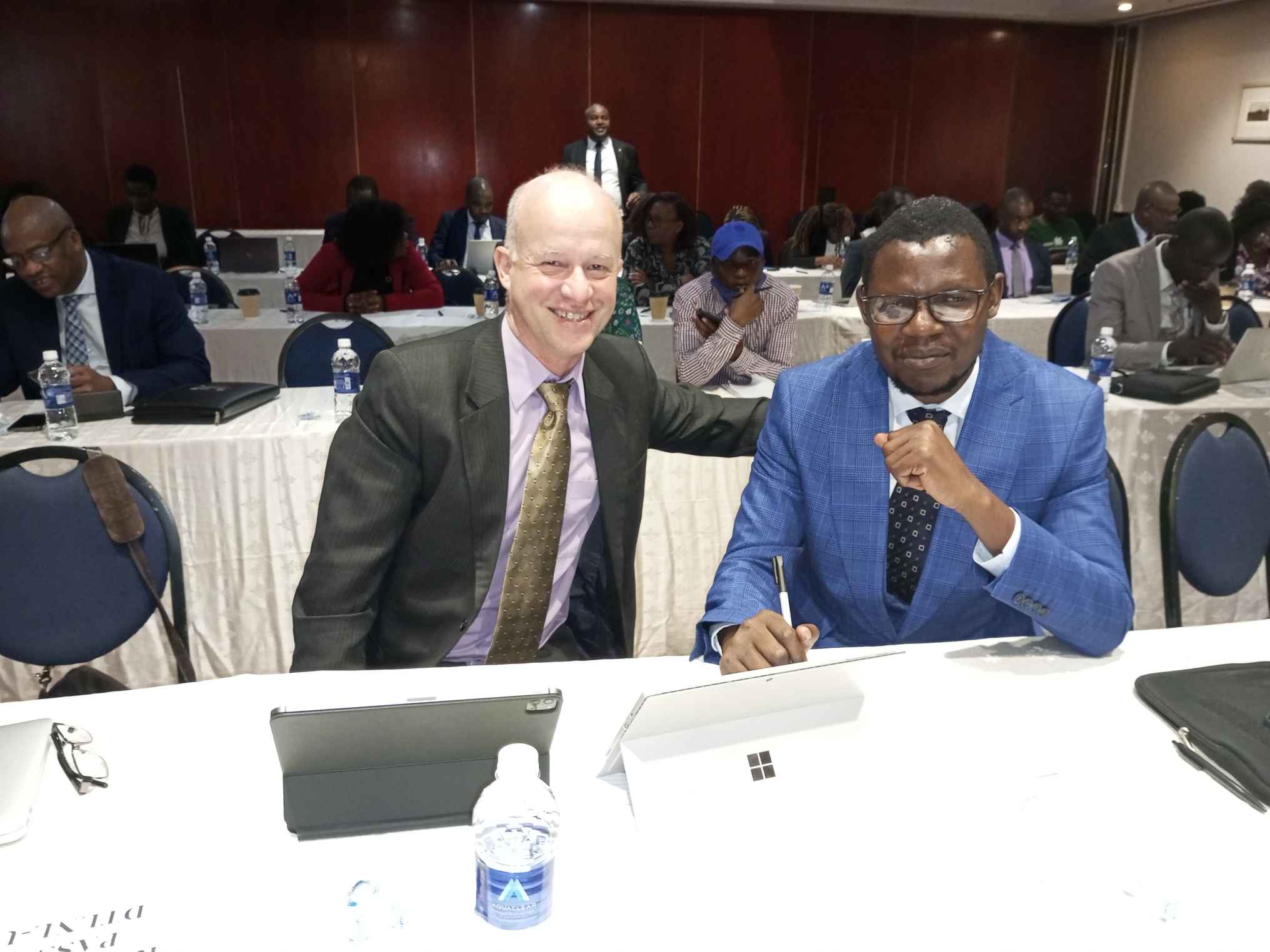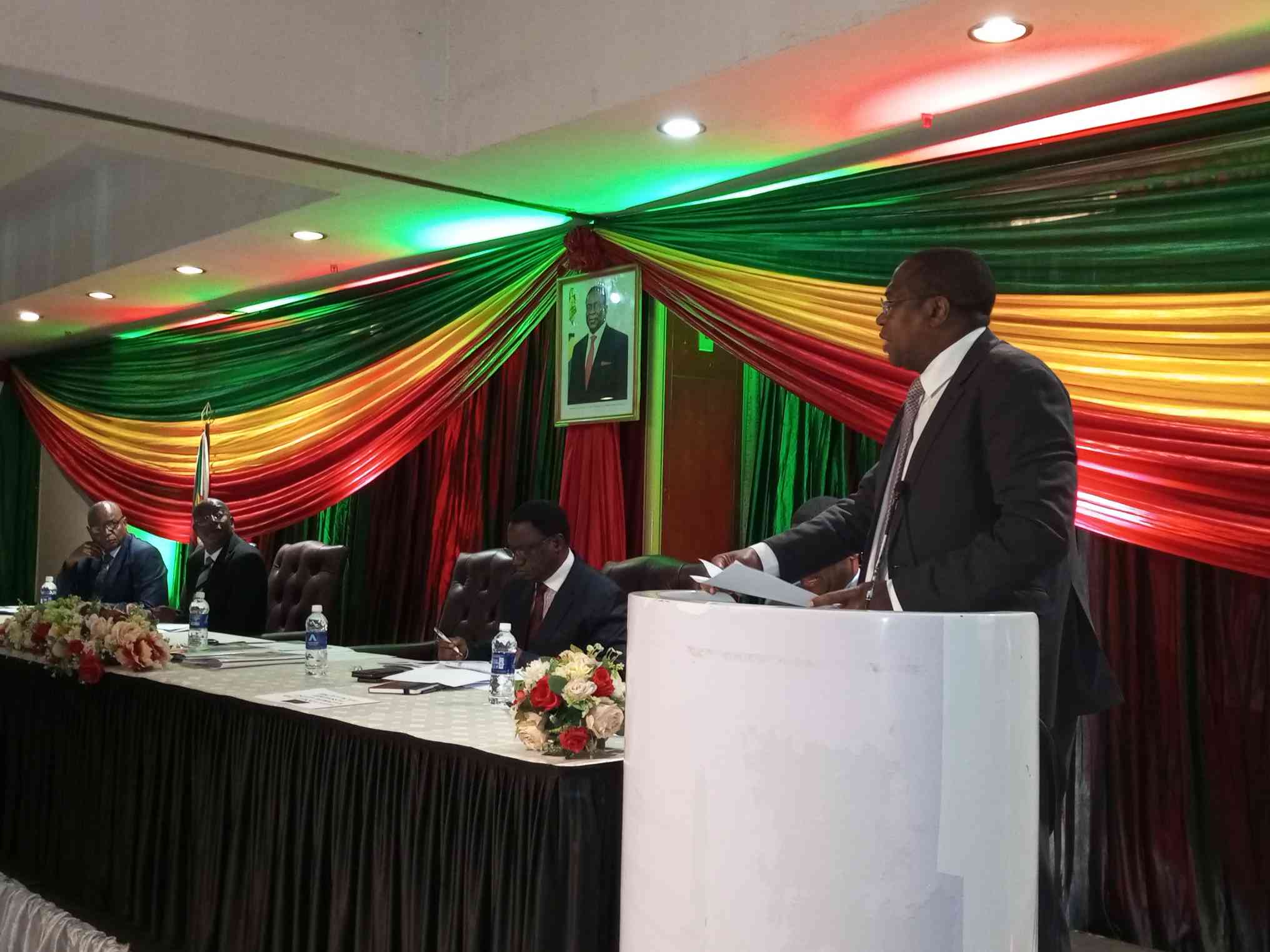|
Getting your Trinity Audio player ready…
|
President Emmerson Mnangagwa has appointed African Development Bank President Dr. Akinwumi Adesina, who has agreed and committed to working with other institutions to support the Zimbabwean government in clearing its arrears and resolving its debts owed to international creditors including the African Development Bank, the World Bank Group and the European Investment Bank.
President Mnangagwa made the revelation today in a speech read on his behalf by the Minister of Finance and Economic Development, Professor Mthuli Ncube during the inaugural Dialogue Platform on Zimbabwe’s Arrears Clearance and Debt meeting at the Rainbow Towers Hotel in Harare.

“The genesis of today’s gathering goes back a few months, when at my request, African Development Bank President Dr. Akinwumi Adesina, agreed and committed to working with other institutions to support our government in clearing its arrears and resolving its debts owed to international creditors including to the African Development Bank, the World Bank Group and the European Investment Bank. The choice of Dr. Adesina as our champion was simple, given that the African Development Bank is our continent’s premier development bank and one of our most trusted partners.
“Dr. Adesina is also passionately committed to our continent’s accelerated transformative development agenda. I, therefore, invited him to champion this process and he graciously accepted. He came to Zimbabwe with his team in July and made an initial assessment. This was followed up with a visit by two of the bank group’s vice presidents a few weeks later. They also made broad consultations.
“After talking with other development partners and recognizing that various economic and governance factors drive Zimbabwe’s arrears clearance and debt resolution process, Dr. Adesina proposed a focused strategy that is in line with our own Arrears Clearance and Debt Resolution Strategy. As a starting point, we have agreed on a focused approach around three pillars, namely; an economic reforms track; a governance reforms track; and compensation to the former farm owners. We embraced this strategy and agreed on it, and that is why we are here today,” President Mnangagwa said.
The inaugural structured Dialogue Platform meeting marks the beginning of an important national process for Zimbabwe, a country that has gone through trying times over the last 22 years.
President Mnangagwa said one of the key lessons that Zimbabweans have learned over the years is the importance of dialogue to resolve differences. It is against this background that the stakeholders’ dialogue today is a way of resolving the long-standing impasse between Zimbabwe, its creditors, and the international community.
In committing to finding a lasting solution to the impasse, President Mnangagwa said engagement and re-engagement are crucial for the country to achieve Vision 2030 of becoming an upper middle-income country by 2030.
The country has done a lot in terms of shaping and implementing multi- facetted and credible policies. Land reform, for example, has been a hotly contested issue surrounding Zimbabwe and the country has been pursuing ways to satisfactorily remedy concerns around land reform while ensuring that the interest of the people remains a priority.
The government continues to implement credible economic policy reforms, which are setting the country on a sustained inclusive economic growth trajectory. It is hoped positive responses will come from a wide range of stakeholders, including Zimbabweans, creditors, and those considering Zimbabwe as an investment destination or a place to reside. Zimbabwe is a peaceful, friendly, and stable country that welcomes everyone.
There are concrete steps being taken by international partners to support Zimbabwe. Recently, there was an assessment visit by Commonwealth Assistant Secretary-General Luis Franceschi – the third Commonwealth assessment visit since 2019, who said Zimbabwe had made impressive progress in aligning its constitution with the Commonwealth Charter.
The Assistant Secretary-General’s concluded: “The conclusion we got from everybody that we met is yes, Zimbabwe and the people of Zimbabwe want to be part of the Commonwealth and family of 56 nations.”
Zimbabwe wants to be part of the Commonwealth family of 56 nations. But it also wants to be a member of the broader international family of nations as well, free of the political and economic barriers that have limited its progress over the past 22 years.
As part of its broad strategy of reengagement with the international community, Zimbabwe is already implementing economic and governance reforms that are necessary and critical to the process it has embarked on.
The country is committed to compensating former farm farmers under the Global Compensation Deed. The former farm owners recently accepted the Government’s offer to settle the Global Compensation Deed amount. This compensation process will commence in early 2023.
There is also the pending settlement of farms under bilateral investment promotion partnership agreements or “BIPPAS.” These farmers were regrettably affected by the land reform program. The BIPPAs are being resolved on a case-by-case basis led by the Ministry of Foreign Affairs and International Trade. This is a strong signal of the Government’s commitment to respecting property rights and to mitigating any concerns that foreign investors might have.
Earlier this month, during the Africa Investment Forum in Abidjan, President Mnangagwa and Dr. Adesina announced the appointment of a high-level facilitator in the person of His Excellency Joachim Chissano, the former president of the Republic of Mozambique. Mr. Chissano is one of the most eminent elder statesmen in Africa and a fort of wisdom. He will be supported by a technical advisor, the former prime minister of Mozambique, Madame Luisa Diogo.
He will also play an important facilitative role between the Zimbabwean government as a debtor, bilateral credit partners, and other relevant stakeholders. This initiative is one devoid of politics. It is a national initiative that concerns all Zimbabweans.
The deliberations today are covering economic and governance reforms, and provide recommendations that will inform subsequent higher-level discussions. There is a very capable team of technical economic and governance advisors, who will assist with discussions on the technical front.
In line with their institutional mandates, the Ministry of Finance and Economic Development will lead economic reforms discussions. The Ministries of Justice, Legal and Parliamentary Affairs; Home Affairs and Cultural Heritage; Information, Publicity and Broadcasting Services; as well as Public Service, Labour, and Social Welfare will lead governance reforms discussions. They will be joined by the Ministry of Foreign Affairs and International Trade which is leading the resolution of BIPPAs and the general engagement re-engagement agenda.
